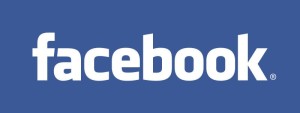
We know from politics how important the internet can be in gaining support for ones case – and now we see clearer signs than ever that it is moving into the national finals as well. But can the many support groups on Facebook decide who wins national finals like the Dansk Melodi Grand Prix?
It was quite a story when DQ won the 2007 Dansk Melodi Grand Prix. The four best from each semi-final qualified directly for the final and DQ and his Drama Queen weren’t among them. When all the losers got a second chance he won the wildcard to the final, but no one was expecting him to go so far and win the whole thing as he had already lost to four of them, but the gay community stepped in and gave him the victory. At least that is how big parts of the press tried to explain how it was possible to win after the viewers already once had said that Drama Queen wasn’t good enough to be in the final.
Whether or not the gay community had so much power or not then it is a fact that gay organisations sent out SMS’s and e-mails to encourage their members to vote for DQ. The press were not satisfied when they draw similarities to an American election campaign.
This kind of promotion campaign wasn’t appropriate for a Dansk Melodi Grand Prix, but with the hugely spread popularity of Facebook it is no longer unusual. Anne Herdorf, who represented Denmark at the 1987 Eurovision Song Contest wants her friend Marie Carmen Koppel to experience what she did and has therefore created a group on Facebook to support her at this year’s Danish final. Claus Christensen cousin is one of the administrators in a group to support him and songwriter Jonas Gladnikoff has created a group to gain support for his singer Hera Björk.
A quick search on Facebook reveals that we see the same thing happening in other countries. In relation to the selection in United Kingdom we see support groups for Mark and Jade. There are also support groups for Swedish artists like Måns, Next, Alcazar and Molly Sandén.
It can be hard to measure how big a role these support groups can play in the actual result of a national final. Many might join all the groups they can find just to get more information about the specific artist or to find more friends and might not necessarily vote for that singer. Facebook and similar internet communities can however have some kind of influence as people might be likely to vote for a singer they feel closer to – and in that way the participants who are active in talking to their fans on such sites might have an advantage. This might not work in all countries as there will be cultures where singers are suppose to have a bit more distance to their fans, but in the Scandinavian countries in particular where people like to feel that they are just as important as everyone else feeling that a participant is your friend will make you more likely to think positive about his or her song.



















